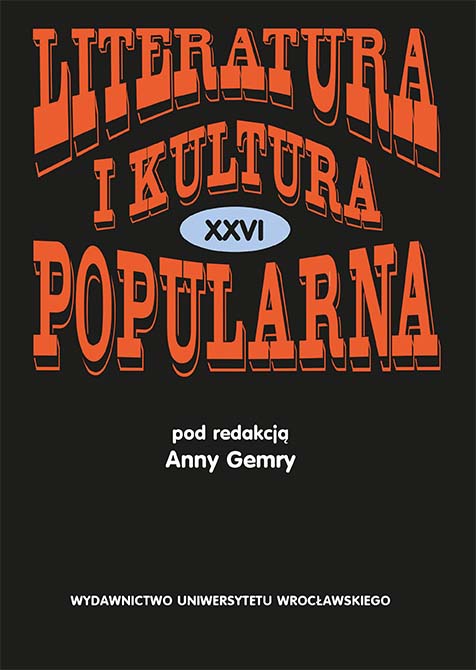

Artykuły

The sketch is an attempt to analyse chosen details noticed in Jacek Komuda’s novel cycle entitled Orły na Kremlu [Eagles at the Moscow Kremlin]. The discussed matters concern particularly two fragments of dialogues enriched with clear allusions to Wojciech Dembołęcki’s quite widely known treatise Wywód jedynowłasnego państwa świata [Treatise on the only country in the world] and an endnote — delivered by the author himself — on the aforementioned book (published in 1633) with additions: some brief characteristics of Dembołęcki and his output. As it appears, any observation or reference to the works of the Polish monk (who died in the mid-seventeenth century) is not extracted from archives, old prints, as Komuda assures us (describing his course of work in his interviews). They rather come both from articles or excerpts found in research books released by scholars. Besides, Komuda in his declared approach to literary work does intend to differentiate significantly from Henryk Sienkiewicz’s masterpiece (Trylogia [The Trilogy]), however many writings of Komuda deny such an idea, which has been proven thorough studies. Nevertheless, the Wywód’s quotations and its transparent paraphrases seem to be valuable in contemporary historical prose, for thanks to them the reader may be acquainted with peopleʼs (especially Polish noblemenʼs) mentality at the beginning of the seventeenth century. Unfortunately, the notes bring some meaningful misunderstandings revealing Komuda’s ignorance, because one may fail in correctly recognising the textʼs main message (Przewagi elearów polskich [The exploits of elears]) or the origin of rhymes cited by the novelist. The sketch closes with a few thoughts concentrated on a possible Samozwaniec qualification within Adam Mazurkiewicz’s typology proposal of historical prose published nowadays.